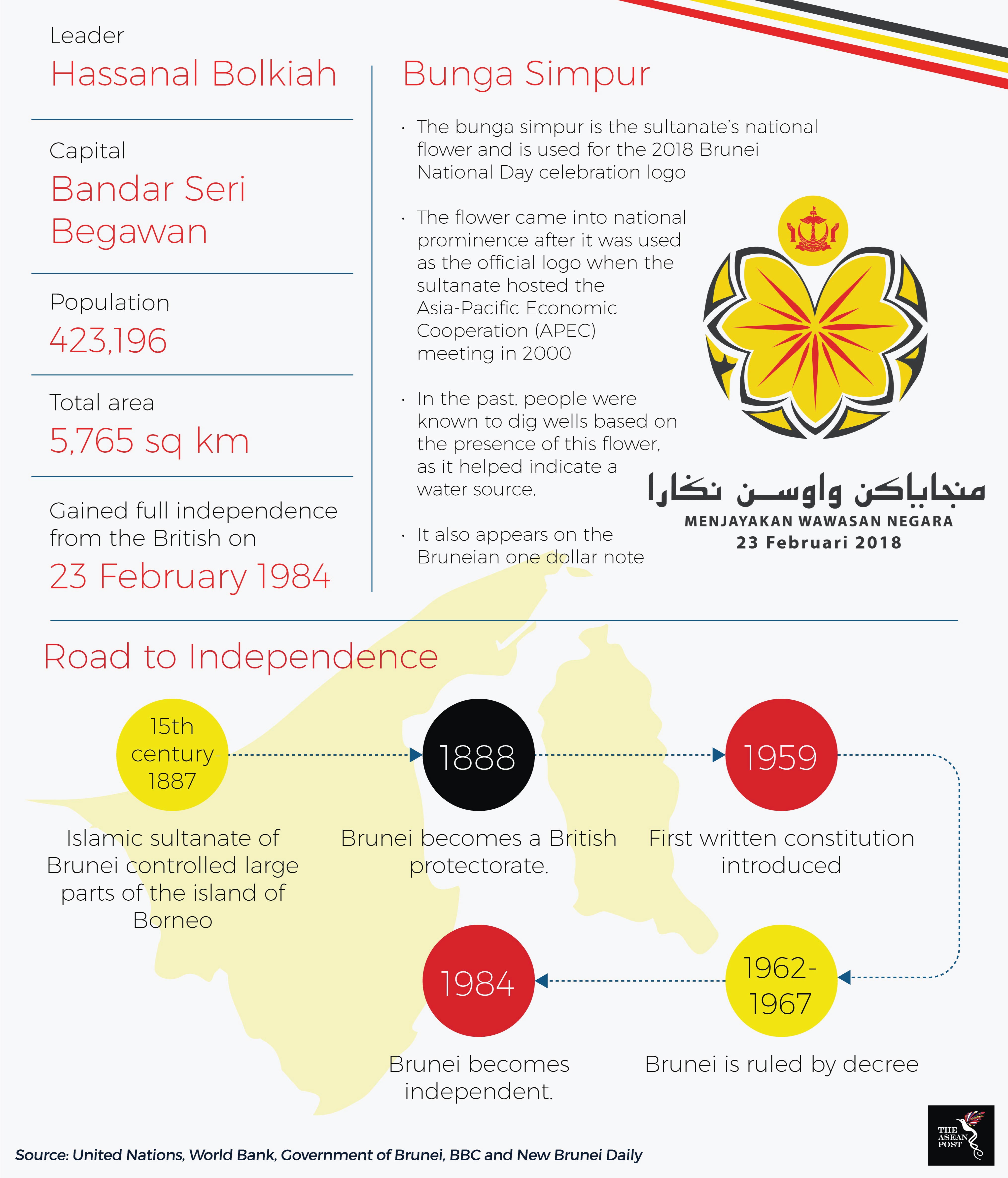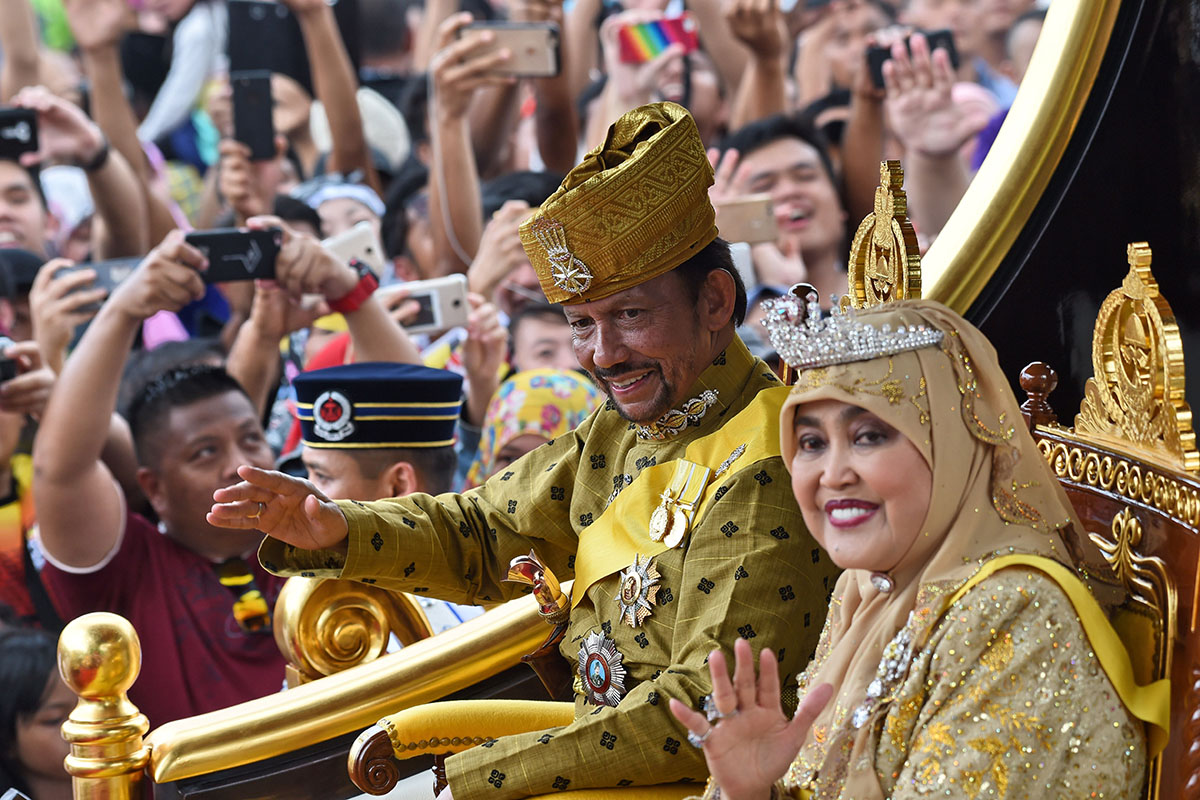Officially, Brunei is known as Negara Brunei Darussalam - negara meaning country and Darussalam translating from Arabic to mean “abode of peace.” This sultanate with a rich cultural background and history, celebrates its National Day today, the 23rd of February.
Brunei lies within the island of Borneo, sandwiched between the Malaysian states of Sabah and Sarawak to its east and west, respectively. It is one of the few countries in the world to be ruled by an absolute monarchy but that has not deterred the nation’s ambitions.
For many years, it has enjoyed tremendous economic prosperity thanks to its abundance of fossil fuel deposits. This geographical advantage places the tiny sultanate in the very high human development category under the Human Development Index (HDI). It is also one of only two advanced economies in the Association of Southeast Asian Nations (ASEAN) – the other being Singapore.
History of independence
Unlike some stories of nations having to struggle for independence from their colonial masters, Brunei’s journey towards self-determination was relatively peaceful and not mired in bloodshed.
From the 14th to 16th centuries, Brunei was a powerful sultanate which controlled much of the island of Borneo and parts of modern day Southern Philippines. The sitting sultan, Hassanal Bolkiah extends from this long lineage making him part of one of the oldest ruling dynasties still in power.
The scourge of colonialism beginning in the 19th century slowly eroded the mighty empire to its current form. British expansionism finally led to Brunei becoming a British protectorate in 1888. Subsequently, in 1906, Brunei was administered by a British resident, Malcolm Stewart Hannibal McArthur with the sultan having only nominal authority.
After the Japanese occupation and the end of the Second World War, an agreement was signed in 1959, establishing a written constitution for the country – the first step towards Bruneian independence. Brunei had a chance for early independence in 1963 when it was invited to join the Federation of Malaysia, but opted to remain a British dependency.

In 1979, Brunei and the United Kingdom signed an agreement which would grant independence to the sultanate in 1984. As of 1 January 1984, Brunei was technically an independent country, however, British control wasn’t fully relinquished until 23 February 1984. Hence, the 23rd of February each year, is celebrated as National Day in Brunei.
Bruneian prosperity lives on
Oil was first extracted in Brunei in 1929, and ever since, it has served as the backbone of the nation’s economy. But with the uncertainties of the global fossil fuel markets, Brunei has recently started diversifying its economy.
As a symbol of Islamic governance in the international arena, Brunei has been quick to capitalise on this brand image to make waves in the Islamic finance and halal industries. Its strategic halal push has piqued the interests of investors from China, South Korea and Malaysia – just to name a few. With the burgeoning rise of Islamic finance, Brunei has become an active player in the Shariah compliant ecosystem – ranking 12th out of 121 in the latest Global Islamic Economy Indicator (GIEI) prepared by Thomson Reuters. It also helps that Brunei maintains cordial relations with every power in the world. including China, the United States, Saudi Arabia and even Russia.
Bruneian society is also a determining factor in building the nation’s image globally. As opposed to democracies which are considered the gold standard of governance today, Brunei’s monarchy has done an impeccable job in caring for its citizenry. Brunei has a well-educated population thanks to universally free education and a free universal healthcare. The entire country is also tax free. Brunei is a safe country, with a homicide rate of 0.5 for every 100,000 people – one of the lowest in the world.
An arduous path lies ahead for this nation as it seeks to change and adapt with the economic currents of today. Will its people be up to the challenge? Given how far the country has come, it definitely seems so.
